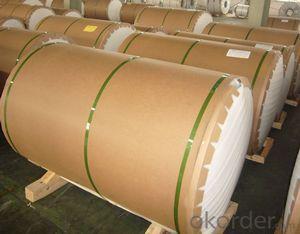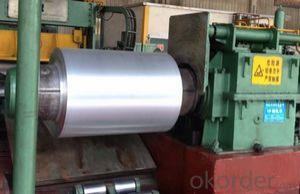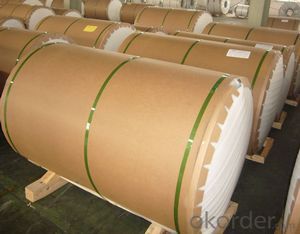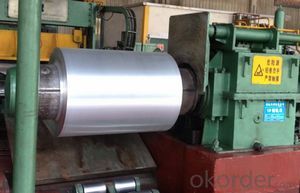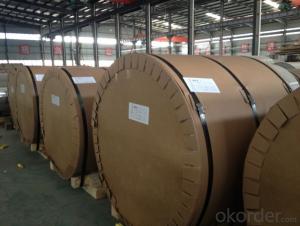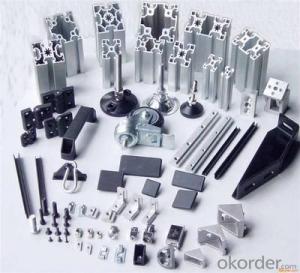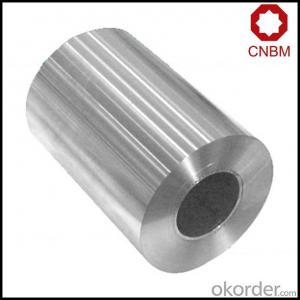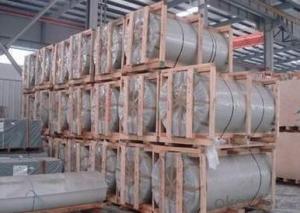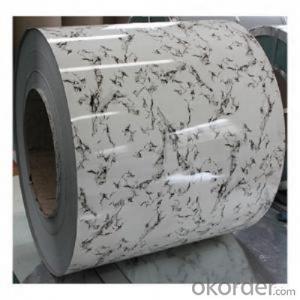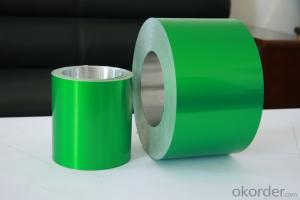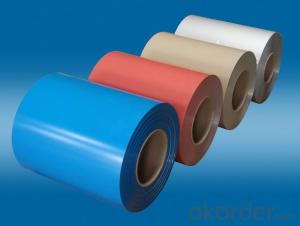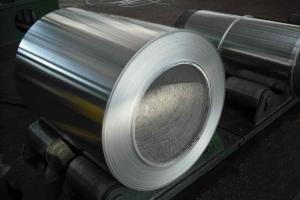AA1050 Coated Aluminum Coil Embossing Machine
- Loading Port:
- China Main Port
- Payment Terms:
- TT OR LC
- Min Order Qty:
- -
- Supply Capability:
- -
OKorder Service Pledge
Quality Product, Order Online Tracking, Timely Delivery
OKorder Financial Service
Credit Rating, Credit Services, Credit Purchasing
You Might Also Like
supply Mill-finished / coated aluminum plate/sheet/ coil:
Alloy: AA1050,1060,1100,1200,2024,3003,3304,3005,3015,5052,5086,5754,5083,6061,7050,7475,8011, etc
Temper: O, H14/16/18/22/24/32/ H112/H321/T6,T851,T7451,T7351, etc
Thickness: 0.02mm—20mm
Width: 100mm—2000mm (Can be slitted)
Notice: PE coating / PVDF coating / Embossment can be done if required.
- Q: Are aluminum coils resistant to oil and grease?
- Yes, aluminum coils are generally resistant to oil and grease.
- Q: Are aluminum coils suitable for lightweight panel applications?
- Yes, aluminum coils are suitable for lightweight panel applications. Aluminum is known for its lightweight and corrosion-resistant properties, making it an excellent choice for lightweight panel applications. Aluminum coils can be easily formed and shaped into panels of varying sizes and thicknesses, making them highly versatile. Additionally, aluminum has a high strength-to-weight ratio, allowing for the creation of strong and durable lightweight panels. These panels find applications in various industries such as automotive, aerospace, construction, and transportation, where weight reduction is important. Overall, aluminum coils are a suitable choice for lightweight panel applications due to their lightweight nature, corrosion resistance, versatility, and strength.
- Q: This question asks about the economic impact of aluminum coils, which are a key material in various industries.
- <p>Aluminum coils significantly impact the economy by driving growth in various sectors. They are vital in construction, automotive, aerospace, and packaging industries due to their lightweight, durability, and recyclability. The aluminum coil market stimulates manufacturing, job creation, and technological advancements. Additionally, their high demand supports the growth of the aluminum industry, influencing trade and contributing to GDP. The recycling of aluminum coils also reduces energy consumption and environmental impact, further benefiting the economy by promoting sustainable practices.</p>
- Q: Are there any limitations to the coil weight of aluminum coils?
- The coil weight of aluminum coils is subject to limitations. The primary factor that restricts the coil weight is the capacity of the equipment used for handling and transporting the coils. Different machinery and materials handling systems have varying weight capacities. Exceeding these capacities can result in safety hazards and equipment damage. Furthermore, the size and dimensions of the coils also affect the maximum weight limit. Larger coils generally have a higher weight limit because they possess a larger surface area to distribute the load. Nonetheless, regardless of coil size, there is a practical limit to the weight that the machinery and equipment can bear. Additionally, the coil weight limit is influenced by the strength and integrity of the material used. Aluminum, being a lightweight material with a high strength-to-weight ratio, allows for larger coil weights compared to other materials. However, excessive weight may cause deformation or damage to the coil, impacting its quality and usability. It is essential to take these limitations into consideration and adhere to the manufacturer's recommendations and industry standards when determining the maximum coil weight. Following proper handling, storage, and transportation procedures is crucial to ensure the safety of personnel and the integrity of the aluminum coils.
- Q: What are the tensile strength properties of aluminum coils?
- The tensile strength properties of aluminum coils are widely acknowledged for being remarkably high. Aluminum, as a material, possesses a remarkable strength-to-weight ratio, which renders it suitable for diverse applications that necessitate both strength and lightweight characteristics. The specific tensile strength of aluminum coils can vary based on the alloy and temper employed. In general, aluminum coils exhibit a tensile strength ranging from 110-310 MPa (megapascals), or approximately 16,000-45,000 psi (pounds per square inch). These figures denote the maximum tensile stress that the aluminum coil can endure before it fractures or permanently distorts. It should be emphasized that the tensile strength can be further improved through heat treatment procedures like cold rolling or annealing. On the whole, aluminum coils are renowned for their impressive tensile strength properties, which contribute to their extensive utilization in industries such as aerospace, automotive, construction, and manufacturing.
- Q: What are the different coil widths available for aluminum coils?
- The different coil widths available for aluminum coils can vary depending on the specific requirements and applications. However, common coil widths for aluminum coils range from as narrow as 1 inch (2.54 cm) to as wide as 72 inches (182.88 cm) or even wider in some cases.
- Q: Aluminium forms layer of aluminium oxide when exposed to air. This prevents further reaction.However, isn't aluminium oxide an amphoteric oxide that can react with both acids and alkalis?
- Like hell, it can.
- Q: What is the typical thickness tolerance for aluminum coils?
- The thickness tolerance for aluminum coils can vary based on specific requirements and industry standards. Generally, the tolerance falls within a range of +/- 0.002 to 0.005 inches. This means that the actual thickness of the aluminum coil can deviate from the specified thickness by a maximum of either 0.002 or 0.005 inches, depending on the tolerance requirements. It's worth noting that these tolerances can also be expressed as a percentage of the specified thickness, typically ranging from 4% to 8%. These tolerances ensure that the aluminum coil thickness aligns with desired specifications and allows for an acceptable level of variation for the intended application.
- Q: This question asks for the method to determine the weight of a steel coil.
- <p>To calculate the weight of a steel coil, you need to know its length, width, and thickness, as well as the density of the steel material. The formula to calculate the weight is: Weight = (Length 脳 Width 脳 Thickness) 脳 Density. The density of steel is approximately 7850 kg/m鲁. Convert the dimensions to meters if they are not already in that unit. Multiply the volume (length 脳 width 脳 thickness) by the density to get the weight in kilograms. For example, if a coil is 2 meters long, 1 meter wide, and 0.005 meters thick, its weight would be (2 脳 1 脳 0.005) 脳 7850 = 78.5 kg.</p>
- Q: This question asks for a brief explanation of the process involved in manufacturing aluminum coils.
- <p>To make aluminum coil, start with high-quality aluminum ingots. These are melted in a furnace and then poured into a casting machine to create a continuous cast strip. This strip is passed through a series of rollers to reduce its thickness and achieve the desired width and thickness. The rollers apply heat and pressure, gradually forming the aluminum into a coil. The coil is then cooled, often using water, and wound onto a mandrel for storage or further processing. Quality control checks are performed throughout the process to ensure the coil meets specific strength, thickness, and surface finish requirements. The final product is a tightly wound aluminum coil ready for use in various industries such as construction, automotive, and packaging.</p>
Send your message to us
AA1050 Coated Aluminum Coil Embossing Machine
- Loading Port:
- China Main Port
- Payment Terms:
- TT OR LC
- Min Order Qty:
- -
- Supply Capability:
- -
OKorder Service Pledge
Quality Product, Order Online Tracking, Timely Delivery
OKorder Financial Service
Credit Rating, Credit Services, Credit Purchasing
Similar products
Hot products
Hot Searches
Related keywords
